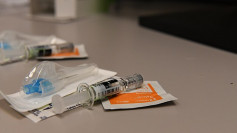A recent study led by the University of Cambridge has unveiled compelling evidence that consuming processed and red meat significantly increases the risk of developing type 2 diabetes. According to the research, which is the largest of its kind, even a seemingly modest intake of just two slices of ham per day can raise the likelihood of developing type 2 diabetes by 15%. This finding underscores the potential health risks associated with dietary habits that include regular consumption of such meats.
The study, published in The Lancet Diabetes & Endocrinology, involved a comprehensive meta-analysis of data from nearly 2 million people across 20 countries, including regions in Europe, the Americas, the eastern Mediterranean, Southeast Asia, and the western Pacific. The researchers analyzed information from 31 study cohorts through InterConnect, a project funded by the European Union aimed at understanding more about diabetes and obesity across different global populations.
The research revealed that habitual daily consumption of 50 grams of processed meat, equivalent to two slices of ham, was associated with a 15% higher risk of type 2 diabetes over the next decade. Additionally, consuming 100 grams of unprocessed red meat daily, such as a small steak, was linked to a 10% increased risk of the disease. Even poultry, often considered a healthier alternative, showed an 8% higher risk of type 2 diabetes when consumed in similar quantities, although the association with poultry was weaker and requires further investigation.
Professor Nita Forouhi, a senior author of the study and a researcher at the University of Cambridge's Medical Research Council (MRC) Epidemiology Unit, emphasized the significance of these findings. "Our research provides the most comprehensive evidence to date of an association between eating processed meat and unprocessed red meat and a higher future risk of type 2 diabetes," she stated. The study supports existing recommendations to limit the consumption of these meats to reduce the incidence of type 2 diabetes within the population.
This new evidence aligns with the UK's National Health Service (NHS) guidelines, which advise individuals consuming more than 90 grams of red or processed meat daily to reduce their intake to 70 grams or less. The guidelines aim to lower the risk of type 2 diabetes as well as other health issues such as heart disease and stroke.
The research team noted that the comprehensive nature of the InterConnect data allowed them to account for various lifestyle and health behaviors that might affect the relationship between meat consumption and diabetes risk. This robust dataset provided a clearer picture of the potential dangers associated with processed and red meat consumption.
Dr. Chunxiao Li, the lead author of the study, highlighted the significance of analyzing data from individual participants rather than relying solely on pooled results from previous studies. This approach, according to Professor Nick Wareham, director of the MRC Epidemiology Unit and a senior author of the paper, enabled the researchers to provide more concrete evidence of the link between meat consumption and type 2 diabetes than was previously possible.
While the study establishes a strong association between meat consumption and an increased risk of type 2 diabetes, experts caution that it does not prove causation. However, the findings are consistent with current healthy eating recommendations, which advocate for a diet rich in vegetables, fruits, nuts, seeds, beans, peas, and lentils, alongside moderate amounts of whole grains, meat, and dairy, with limited intake of added fats, salt, and sugar.
Dr. Duane Mellor, a dietitian and spokesperson for the British Dietetic Association, who was not involved in the study, reiterated the importance of moderating meat intake as part of a balanced diet. He also advised that if individuals choose to reduce their meat consumption, they should ensure they obtain essential nutrients such as iron, vitamin B12, and protein from other food sources to maintain overall health.






